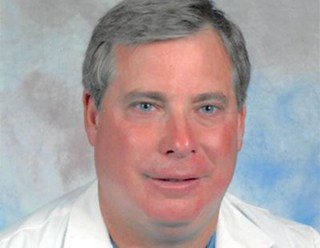


By. Dr. John Livingston, MD | Special Advisor on Medical Policy
Proposition 2—Obamacare expansion—will hurt sick patients who, through no fault of their own, cannot take care of themselves. These are the people we should be taking care of, and whose future care is put in jeopardy.
Medicaid expansion would subsidize large insurance carriers and large hospital systems that have more than $5 billion of combined revenue and more than $1 billion of reserves. The 90-10 federal/state match is not forever and just like in 2011, with the 70-30 match for those receiving benefits living below 100 percent of the federal poverty level, critical services like dialysis could be rationed when the federal poverty formula changes.
This has already happened. Ohio is a mess. Medicaid gobbles up 40 percent of that state's budget. Enrollment in the expansion population is double what was projected and cost of coverage for this population has also doubled.
In Idaho's individual insurance market, premiums have doubled and co-pays and deductibles have risen to the point where patients are forgoing maintenance medical care and emergency room visits. Wages aren't growing at the same rate as the consumer price index because employers are paying more for their employees’ health insurance.
It is our moral obligation to take care of those in need. "What you do for the least of my brethren you do unto me" defines the covenant between the giver and the receiver to which God is a party. Never do I find in my Bible where our charitable obligation to others can be discharged through a government program. We are told "to render unto Caesar that which is Caesar's." The government is never supposed to be the conduit for helping others.
Many speak of an "investment multiplier” when it comes to Proposition 2. Allow me a few words on the topic.The short-term impact to the economy of government monies to hospitals and insurance carriers in the form of transfers, activation fees, and risk corridors cannot be denied. Private long-term investments have a much greater return on investment. Sixty-five years ago taxes at all levels of government for a family of four were 23 percent of yearly income. In today's dollars, that family's income would be $52,000. Today that family makes $56,000 per year. Because of the increasing costs of federal programs combined taxes paid by that family now are 38 percent. The gross domestic product growth over that period of time has been two percent per year, but if taxes had remained at 23 percent of income, gross domestic production growth would have been four percent per year. That family would have an income of over $200,000 per year—enough to save for retirement and college. Additionally, such growth would put gross domestic product at $50 trillion instead of $20 trillion. And 23 percent of $50 trillion is almost $11 trillion instead of the $5 trillion we spend on government services today.
By "eating the seed corn" available to the private sector today, we are limiting our ability to care for those who can't take care of themselves in the future.
We need to contain healthcare costs first. We should require all nonprofits that receive more than $100 million of transfer payments to undergo an independent outside, signed partner's audit to be made available to the people of Idaho. We should absolutely be able to see where the money goes when we give the Idaho Department of Health and Welfare a credit card without reconciling charges. I would also recommend asking for a two-year "Wisconsin waiver" for a state reinsurance program and phasing out the county indigent and catastrophic care funding.
Cost before coverage. Coverage is not access. Access is not quality.


